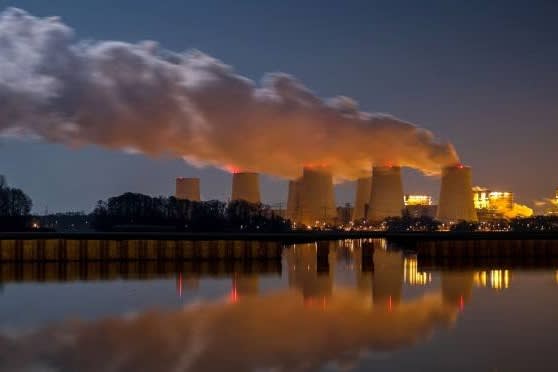Amazon, Ikea and Unilever commit to zero-emission shipping by 2040
A group of international companies including Amazon, Ikea and Unilever have committed to using only zero-emission ships to transport their cargo by 2040, in the biggest step yet to decarbonise ocean shipping.
The pledge by nine multinationals should give shipping groups and others confidence to invest in the ships, infrastructure and fuels needed to eliminate the sector’s greenhouse gas emissions. Shipping is responsible for almost 3 per cent of greenhouse gas emissions globally.
Decarbonising shipping will involve investing billions of dollars in redesigning fleets and producing new fuels such as green ammonia, methanol and hydrogen at scale.
Amazon said its goal would apply to any cargo it handled, including that of third-party sellers which turn to the US company to handle logistics. They make up most of the sellers, with many based in China.
The group of companies, which also includes Zara owner Inditex, Michelin, Patagonia, Brooks Running, Frog Bikes and Tchibo, said fuels used to hit the 2040 target must be sufficiently scalable and have zero greenhouse gas emissions on a lifecycle basis including production, not just during use.
No zero-carbon fuels are at present available in the quantities needed to decarbonise the entire shipping industry. Safety and land use concerns — a problem for biofuels — must also have been addressed.

The commitment by the companies comes despite turmoil in global supply chains that has caused container shipping costs to jump as much as 10 times over pre-pandemic levels on some trade routes.
Significantly, the companies have explicitly ruled out using ships that run on liquefied natural gas, which puts pressure on groups such as France’s CMA CGM to power those vessels with green methane, or face the risk of ships prematurely depreciating or being written down. Green methane could fuel LNG-powered ships, unlike methanol, ammonia and hydrogen.
The initiative vindicates the decision by Maersk, the world’s largest container shipping group, to be the first company to invest in vessels capable of running on green methanol and avoid investing in LNG-powered ships.
The companies’ initiative goes well beyond current plans under the International Maritime Organization, the UN shipping regulator, which set a target in 2018 to cut the sector’s emissions by at least 50 per cent by 2050 versus 2008 levels.
This target has been criticised by environmental groups for falling short of pledges in the Paris Agreement, the international treaty on climate change adopted in 2015.
Morten Bo Christiansen, head of decarbonisation at Maersk, said the volume of goods shipped by the nine groups involved in the initiative was significant and, more importantly, the ambition would buttress efforts to encourage fuel producers to invest.
“This is the best news we’ve had for a very long time in our industry,” he said. “It encourages leapfrogging to properly carbon neutral fuels.”
Johannah Christensen, chief executive of the Global Maritime Forum, which brings together companies across the supply chain that can decarbonise shipping, said: “It has the potential to be a game-changer vis-à-vis the green fuel producers.”
Ingrid Irigoyen, director of the Aspen Institute Shipping Decarbonization Initiative, which facilitated the scheme, said the statement aimed to create confidence that there are freight customers who want zero-carbon shipping soon.
“You need bunkering capacity, a steady supply of zero-carbon fuels and the zero-ready ships. Those projects need financing. Underpinning this all is the customer demand,” she said.
Streams of companies have issued net zero commitments but Irigoyen said that “even the most ambitious companies haven’t said anything specifically about maritime in their sustainability plans until now”.
The nine companies also demanded regulatory support through aligning decarbonisation goals with the Paris Agreement and market-based measures such as a carbon tax to make zero-carbon fuels competitive with fossil fuels, which are estimated to cost about three times as much.
“It’s crucial that policy support is an important part of this equation,” said Elisabeth Munck af Rosenschöld, sustainability manager of supply chain operations at Inter Ikea Group, Ikea’s holding company.
Climate Capital

Where climate change meets business, markets and politics. Explore the FT’s coverage here.
Are you curious about the FT’s environmental sustainability commitments? Find out more about our science-based targets here